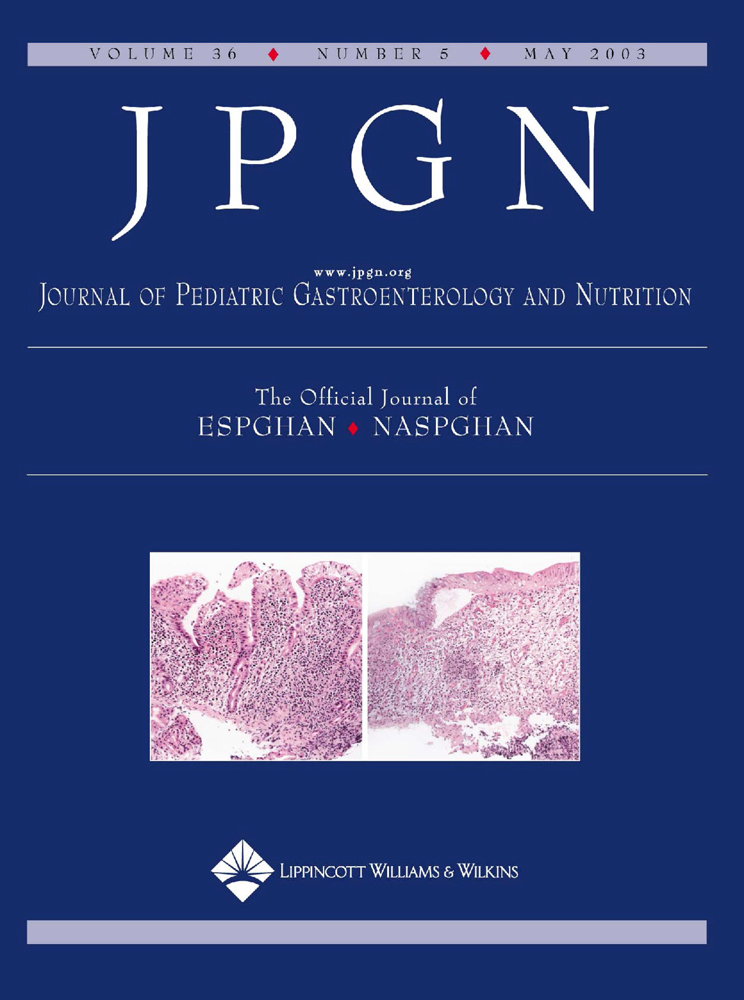A Prospective Study of the Efficacy and Tolerance of a Chimeric Antibody to Tumor Necrosis Factors (Remicade) in Severe Pediatric Crohn Disease
ABSTRACT
Objectives
To evaluate the efficacy and toxicity of infliximab in children with severe Crohn disease (CD), the authors prospectively monitored 21 children aged 15 ± 2 years with severe CD who they treated with infliximab (5 mg/kg) on days 0, 15, and 45. One patient received only one injection. Eighteen patients were corticosteroid dependent, and 6 were receiving parenteral nutrition. Three patients were corticoid resistant (1 mg/kg/d >15 days). Sixteen had perianal disease.
Results
The Harvey-Bradshaw index (HB) decreased from 8 ± 3 on day 0 to 1 ± 2 on day 45 (P = 0.001). The inflammation factors decreased (P = 0.001), and albumin increased (P = 0.002). Nineteen children were in complete remission (HB < 4) on day 45, and 2 had improved (HB = −6 points). Tumor necrosis factor-α (TNFα) in the stools (n = 16) decreased (P = 0.04). All perianal fistulas (n = 12) were closed by day 90. Fourteen of 21 patients had stopped taking steroids at 3 months, and all had stopped parenteral nutrition. Growth velocity was significantly greater after infliximab administration (Z score, +0.5) than before (−0.45;P = 0.004). Nineteen of 21 patients had relapsed (90%) at 1 year despite continued immunosuppressors. Seven had surgery because of an uncontrolled relapse (5), stenosis (1), or fistula (1). Six patients developed antinuclear antibodies (1/40–1/640e), and two had anti-DNA antibodies. Epstein-Barr virus (EBV) polymerase chain reaction (PCR) values increased (>100-fold) in eight patients. One child developed an anaphylactic reaction to the medication, and one had a catheter-related sepsis.
Conclusion
Infliximab produces spectacular results for children with severe CD and is well tolerated. However, its effect is transitory for many (90%), with frequent relapses despite continued immunosuppressors. Long-term management with infliximab should be tested despite its worrying side effects.




